What I learned as a ‘brain tourist’ in Japan
A glimpse of neuroscience on the opposite side of the Pacific
February 9, 2017

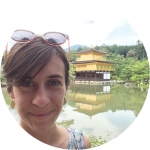 |
Megan Kirchgessner
Neuroscience PhD student at UCSD, studying cortical circuits in the Callaway Lab at the Salk Institute for Biological Studies. This post originally appeared on Neurographic and NeuWrite San Diego |
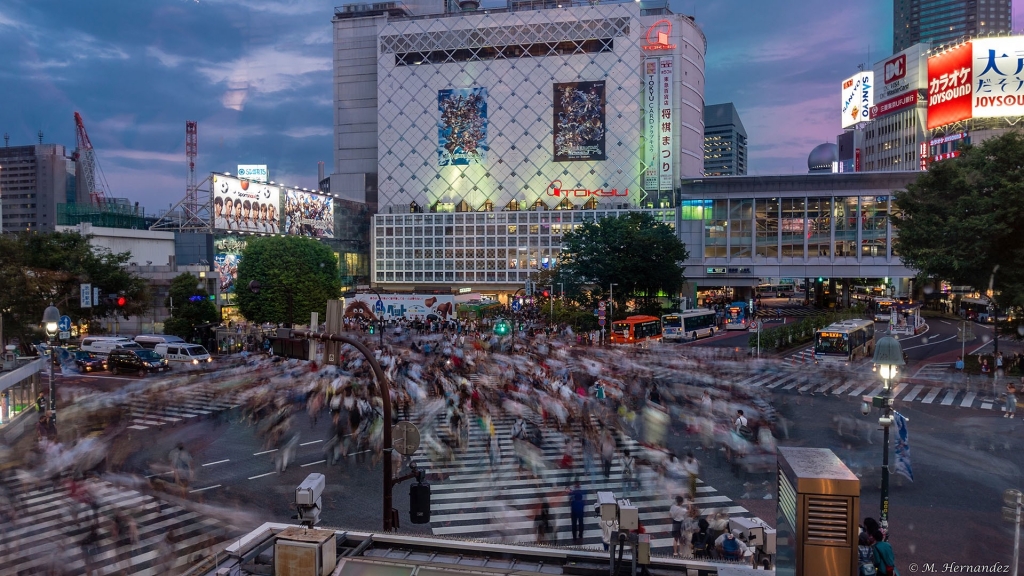
Image: tengri555, CC BY-NC-ND 2.0
I never would have guessed that studying the brain would take me to such interesting places. When I signed up for graduate school, I assumed that I was resigning myself to staying in the same place and doing more or less the same thing for five to six years. I have found quite the opposite to be the case.
Last summer, I had the unique opportunity to attend a week-long lecture course on “Staking, Making, and Breaking Circuits” at the RIKEN Brain Science Institute in Wakō, Japan, in the greater Tokyo area. RIKEN is a large scientific research institute with a number of campuses scattered throughout Japan. The Brain Science Institute (BSI) in Wakō hosts two annual summer courses: an internship course, allowing visiting students to conduct research over the summer months, and a week-long lecture course perfect for graduate students who have their own research projects to return to at their home institutions. I’d heard about the lecture course, and applying seemed like a no-brainer. I liked hearing cool talks about neuroscience, and I’d never been to Asia. Perfect!
Sitting down for breakfast on my first morning in Wakō, I encountered many other graduate-aged-looking individuals eating their Japanese breakfast in the hotel lobby. Gradually, I began to hear (and participate in) awkward introductions leading to full-fledged conversations. I could pick out traces of incredibly diverse accents coming from nearly all of the different continents that, while foreign, were talking about very familiar subjects: their research labs, their interests in the brain, jetlag…
After passing our first and only test of the course — finding our way from our hotel to RIKEN’s campus — the program kicked off with the first of 15 lectures over five days. With an hour and a half at their disposal, the lecturers were able to truly delve into their topics, covering significant background as well as multiple ‘stories’ that have come out of projects from their own labs. These diverse lectures covered nearly the whole brain, from the cerebellum to the hippocamus to even the comparatively tiny locus coeruleus (literally ‘blue place’). Through this tour, we began to see how different circuits in different parts of the brain, and even in different animals, utilize many similar organizational principles to make unique contributions to animal behavior. While I selfishly lamented the paucity of talks about the cortex (the subject of my own research), the breadth of these lectures were what made this program unique and valuable. There was more than one instance when I knew next to nothing about the topic being discussed — like David Foster’s talk on place-cell sequences in the hippocampus that encode a rodent’s future trajectory through an environment — and left the lecture in total awe. The exciting nature of the talks was enhanced by the quality of the speakers, many of whom were still early in their careers. It was exciting to hear from (and then eat lunch with) many rising stars in their respective fields, such as David Foster, Dayu Lin, Masanori Murayama and Michael Bruchas, to name a few, from whom I’m certain we will hear a lot from over the coming years.
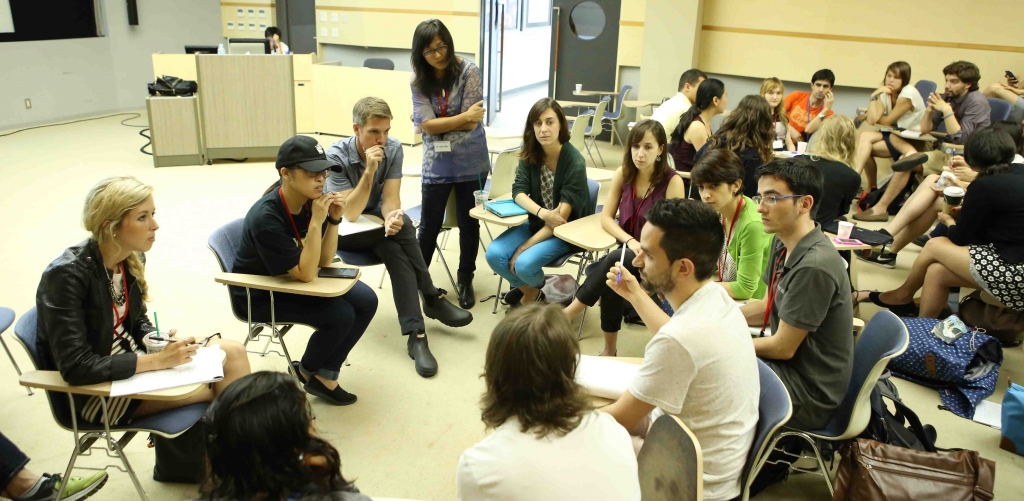
Group discussions during the lecture by I-han Chou, a senior editor from Nature
But while the lectures were outstanding, my longest-lasting takeaways from the course were the people I met and the connections I made. I was incredibly fortunate to have made good friends from all over the world in just a week-long course, many of whom I know I will continue to encounter throughout my neuroscience career. In fact, many of us already reunited at the most recent Society for Neuroscience conference, and I expect to continue to visit their posters and catch up at future conferences. Even one of the lecturers — Joshua Johansen, who himself attended the RIKEN lecture course before eventually becoming faculty at RIKEN BSI — told us that he still keeps in touch with and is good friends with many of the people he met when he was an attendee. In this way in particular, the RIKEN BSI summer lecture course far surpassed my expectations.
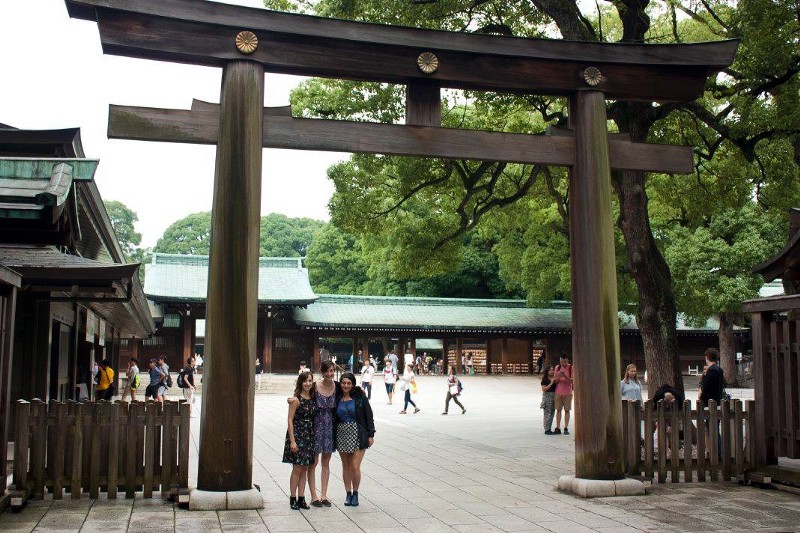
Exploring the Meiji Shrine with some new friends from the RIKEN BSI Summer Lecture Course
The lectures and the people would have been more than enough to make my trip to RIKEN worthwhile, but the chance to visit Japan made it unforgettable. While during the week we were ‘brain tourists’ being led through different parts of the nervous system, we also got the chance to be real tourists in the evenings and as part of the optional Tokyo tour at the conclusion of the course. Not only did I get to satiate my owl obsession at one of Tokyo’s many owl cafes, take a 24-hour excursion to Kyoto on the bullet train, and eat the best ramen of my life, it was also incredibly rewarding to engage in science in a culture that is very different from my own. From speaking with postdocs and faculty who were from Japan and some who were American transplants, I got a glimpse of what it would be like to be a scientist on the opposite side of the Pacific Ocean.
Whether at RIKEN BSI or elsewhere, either within the United States or abroad, there’s a lot for a graduate student to gain from these sorts of extended courses. As a relatively early-stage PhD student who was new to systems neuroscience and eager to get my feet wet in the field, the breadth of the RIKEN BSI summer lecture course was perfect. Other students might be inclined to seek out courses that hone in on a specific topic or a particular technique, for example those offered by Cold Spring Harbor Laboratory or Janelia Research Campus. Regardless, not only will you undoubtedly get to supplement your intellectual and/or experimental toolkit, you’ll also meet similarly-minded people from all around the world who may one day be working down the hall from you.
The application for the RIKEN BSI summer lecture and internship courses starts from December and ends in February.
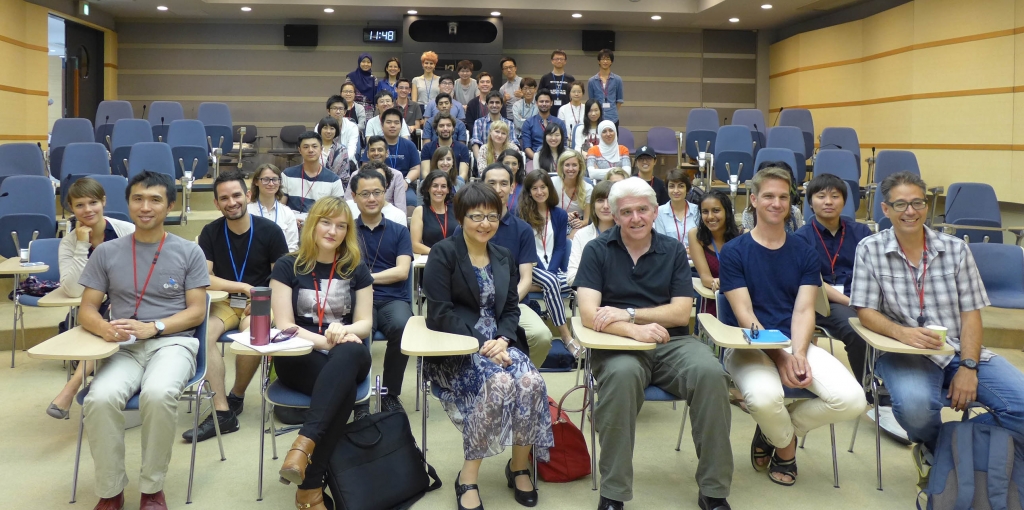
The class of 2016 RIKEN BSI Summer Program